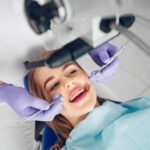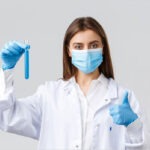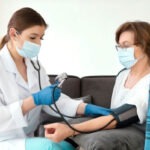Cancer Testing
For women
A Mammogram should be done annually after age 40, along with monthly Brest self examination.. For early detection of pelvic and cervical cancers, a PAP smear and pelvic exam should be conducted every one to three years and yearly for women with a higher risk of disease. A Bone mass density test should be done for women with high risk of osteoporosis.
Tests for men:
Prostate and PSA (prostate specific antigen) levels should be checked for early detection of prostate cancer. Prostate checks are suggested in men from about fifty years of age onwards every year or so.
Fecal occult blood test:
This test, which should be done annually, checks for blood in the stool as an indicator of possible colorectal cancer.
Colonoscopy and flexible sigmoidoscopy
These tests are done to detect colon cancer. If you have a family history or other risk factors for colon cancer, Colonoscopy is recommended every 10 years. People over 50 should have a flexible sigmoidoscopy every five years.
Cardiac Check up
Coronary artery disease is listed as one of the highest killers in the world- almost at par with cancer. The changed life styles and increased stress levels has resulted in this disease manifesting itself at younger persons now. People at around 30 years of age are also effected by this. Annual cardiac evaluation in following case is a must- and necessary in others:
- Persons with family history of CAD
- Diabetics
- Persons with high blood pressure
- Persons with sedentary life styles
- Obese / overweight people
The doctor will check up for the following during the visit:
- Anamnesis
- Blood pressure check
- ECG examination
- Cholesterol / Lipid Profile of blood
- Blood sugar levels- fasting and Post parendil
- Urine examination
- Fecal matter examination- if required
In addition the Cardiologist may also order a Tredmill Stress Test. You should also consult a dietician to clarify about your diet as per the results of the tests.
Also, an annual visit to the eye doctor will allow the doctor to check your eye for movement, vision, sharpness and pressure. These exams can also determine whether or not you need corrective lenses and to identify new vision problems.
A carcinological examination is also part of this preventive medical examination. The doctor tests urine, rectum, testicles or breasts (respective of sex of patient) and instructs the patient on the necessity and methods of self-examination.







Facebook Comments